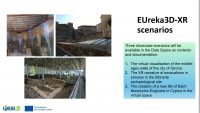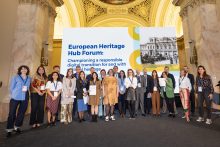text and all images courtesy of the project From Intangible Expression to Digital Cultural Heritage

The aim in this Project is to boost introduction of national as well as European intangible cultural heritage subjects with innovative technological methods. Also we intend to maintain the intangible cultural heritage alive with the help of new educational Technologies. It is significant to make the intangible cultural heritage visible for all the students,their families,stakeholders and the society. With the help of the activities of the Project the students will be able to recognise, explore and understand their own cultural assumptions. It will increase good practices among teachers and partnerships with stakeholders. Also it will help in promoting intercultural dialogue among participants.
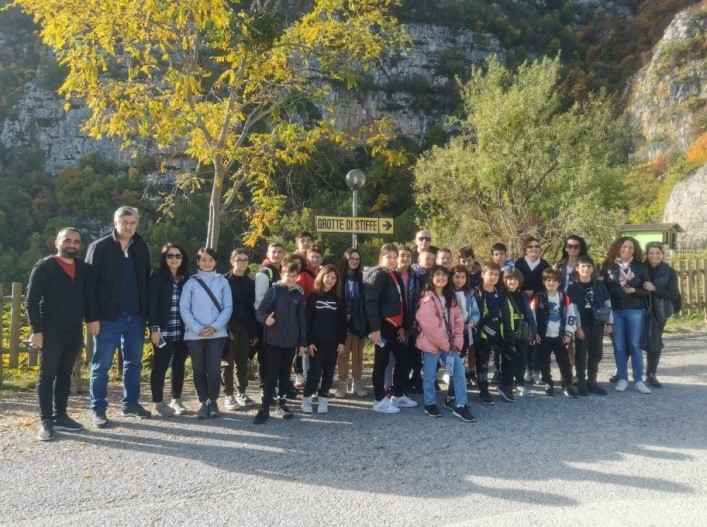
The fist Virtual meeting was organised by the Primary School named Instituto Comprensivo “B.Croce” in Paglieta, Italy from 23rd to 29th of October 2022. It was attended by 6 students and 2 teachers from each partner schools.During these 5 days activities all the participants recognised the art of storytelling as an Italian Intangible Cultural Heritage element. We learned about the transition of the Italian Intangible cultural heritage through innovative new Technologies and various learning and teaching methods. We were shown the benefits of the Europeana.eu platform as a teaching tool. The students had a very enjoyable experience with the use of digital Technologies like Kahoot. Especially the students were inspired by this app and they got in very close touch with the other countries’ students. All the learning-teaching activities gave us the opportunity to practice by combining skills and knowledge. We started to share innovative teaching methods, best practices and information and this helped and will continue to help us to grow our pedagogical skills and knowledge.
We prepared stands and displayed our cultural materials. We had a cultural trip to Procida. It is the Italian Capital Culture. We celebrated the European Cultural Heritage Day. We also had some more cultural trips and had some workshops.


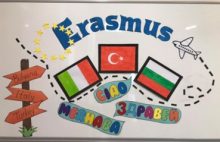








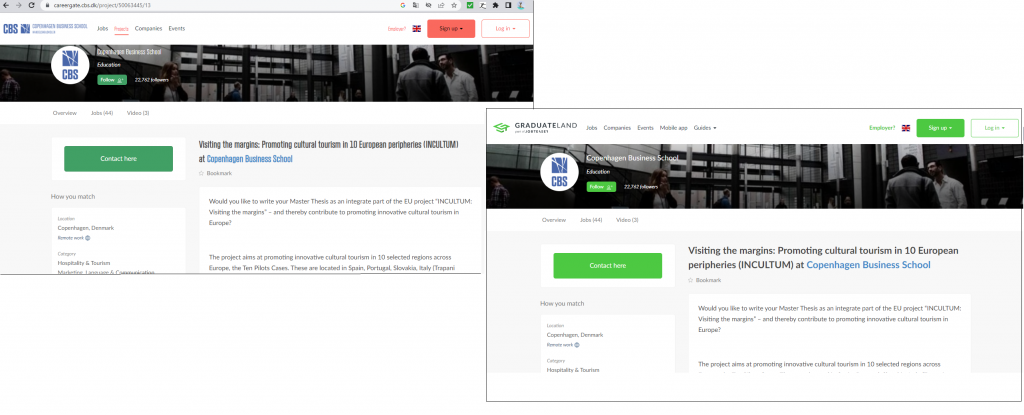


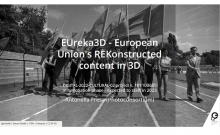
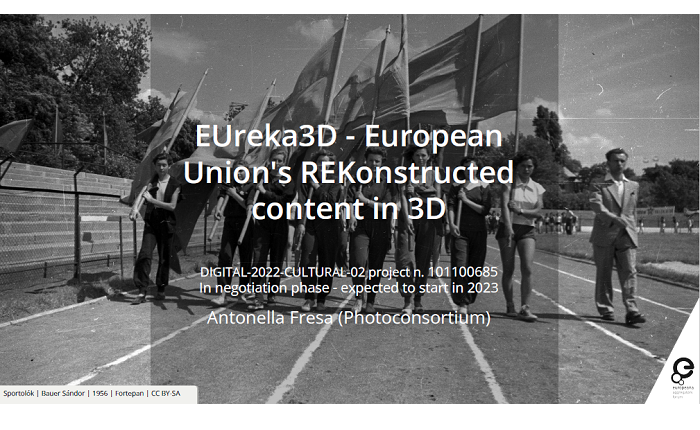 EUreka3D is a project funded by the Digital Europe Programme of the European Union, to support the digital transformation of the cultural heritage sector, by offering capacity building and training, and new services, to Cultural Heritage Institutions facing the challenge of advancing in the digitization effort, especially in 3D.
EUreka3D is a project funded by the Digital Europe Programme of the European Union, to support the digital transformation of the cultural heritage sector, by offering capacity building and training, and new services, to Cultural Heritage Institutions facing the challenge of advancing in the digitization effort, especially in 3D.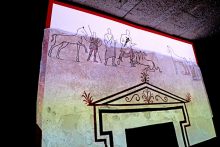
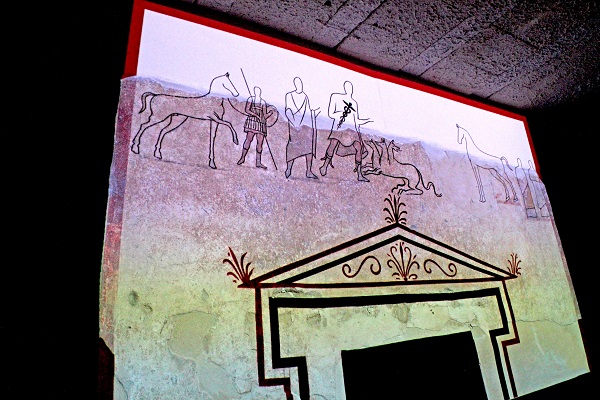









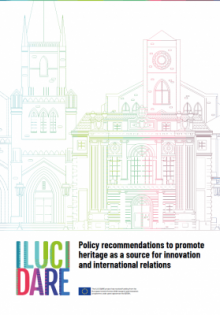
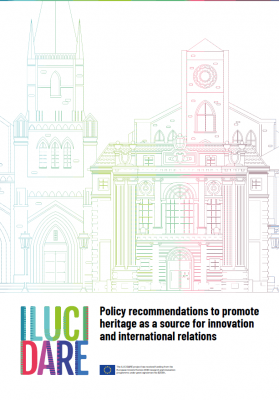 ILUCIDARE was a three-year EU-funded H2020 project aimed at establishing an international network promoting heritage as a resource for innovation and in international relations through a diversity of collaborative activities.
ILUCIDARE was a three-year EU-funded H2020 project aimed at establishing an international network promoting heritage as a resource for innovation and in international relations through a diversity of collaborative activities.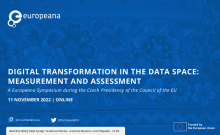
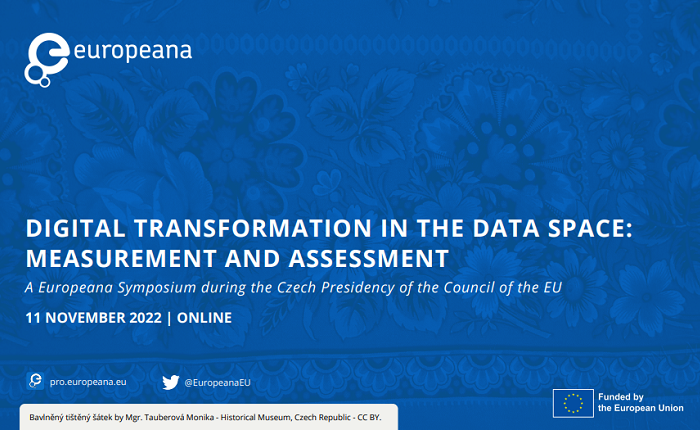
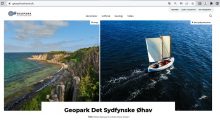
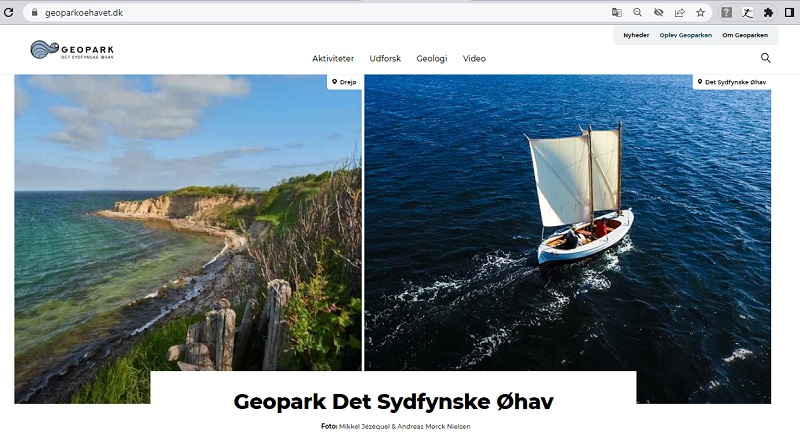
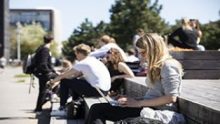
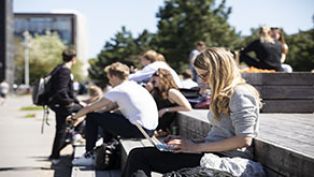


 If you have interesting news and events to point out in the field of digital cultural heritage, we are waiting for your contribution.
If you have interesting news and events to point out in the field of digital cultural heritage, we are waiting for your contribution.





























